What Do the 2025 Local Elections Candidates Talk About? #2
WEEKLY OVERVIEW #2 (22ND-28TH SEPTEMBER 2025)
The analysis of the media coverage and social networks in the past week reveals that the candidates for mayors communicate on a number of topics, each one with their own focus and with various effectiveness.
The first topic is related to the environment. The messages are predominantly related to landfill fires, forest fires, air pollution and other environmental crises. The citizens mostly react when the specific environmental problems are connected with specific settlements or when there is a clear timeframe which shows that they are more interested when the focus is narrower and more precise.
The second group of questions is related to result delivery. They cover education, schools, local self-government and specific local interventions – open facilities, renovated streets, improved school conditions. The candidates who connect their messages with a tangible result with a clear deadline have a higher level or reactions from the citizens. The audience obviously reacts to what they can check and measure.
The third group covers local issues, public transport, education, urban planning, youth participation and general city agenda. This is also a confirmation of the find that the specific and local messages create strong engagement with the citizens. The broader, national themes do not motivate the citizens, and although the number of posts is big, the intensity of the engagement drops.
What really moves the citizens?
It is clear that 2025 local elections function as an amplifier – but only when connected to something specific. The combination local problem + operational solution + timeframe creates a viral effect. Messages such as “clean-up in 72 hours”, “fixing schools by the end of the month” or “new buses as of next week” generate many more reactions that abstract promises of development, reforms or visions.
When it comes to topics, environment is not the most powerful mobiliser – especially when it comes to landfill fires and air quality. Education and schools are the second stable topic. Heath care is a narrower, but strong niche, especially in the Skopje region.
The crucial thing is: the closer the message is to a specific settlement, and the clearer it is when it happens, the better it works. The general positions and national topics lose their impact – the voters ask for something that they can monitor and check.
What happens with the civil society topics?
Monitoring has shown full absence of discussion on two topics:
- Civil society financing
- Transparency and accountability
This is no surprise, but it is an important find: these issues are not on the agendas of any of the candidates. For the CSOs that work on these topics, it means that they have to more proactively include them in the public debates, by connecting them to local services, environmental problems or specific cases of inefficiency. Without this, these topics are in risk of remaining invisible throughout the whole campaign.
Where does the discussion happen?
Although the candidates massively publish on Telegram, this platform generates almost no reaction. As opposed to it, TikTok is by far the most effective channel – with an average of 386 interactions per post, which is four times more than Facebook and Instagram. This shows that there is a clear strategic gap: the effort is focused where there is no audience, and the audience is where the candidates are less active.
Hate speech: The most visible candidates receive the biggest amount of hate speech in absolute numbers; nevertheless, proportionally highest levels of hate have been noted in the smaller, local discussions, which indicates a localized polarization.
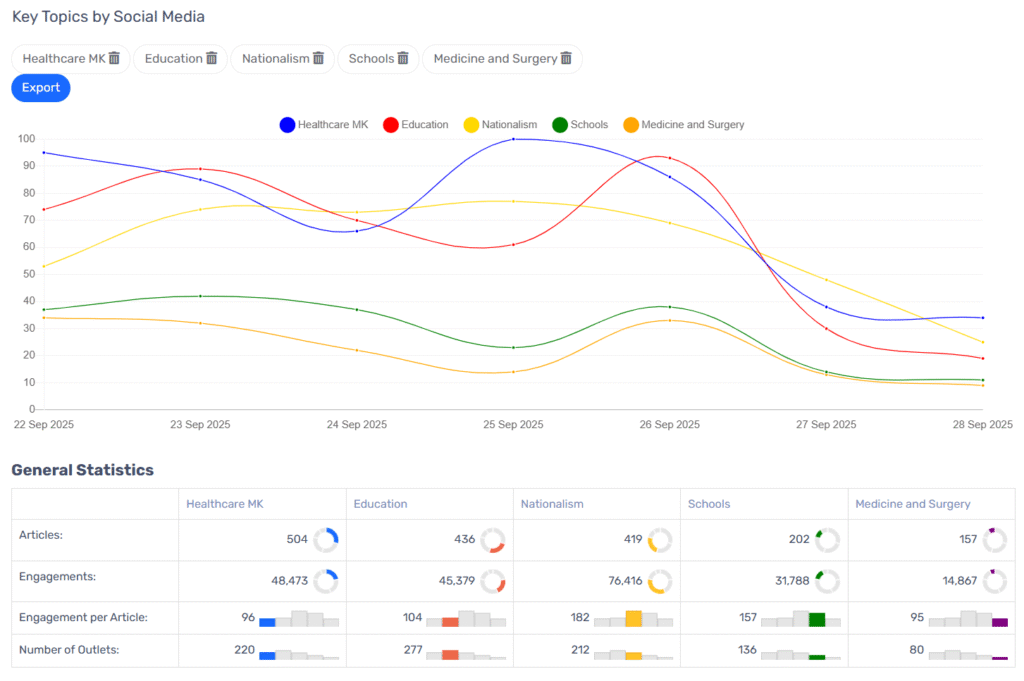
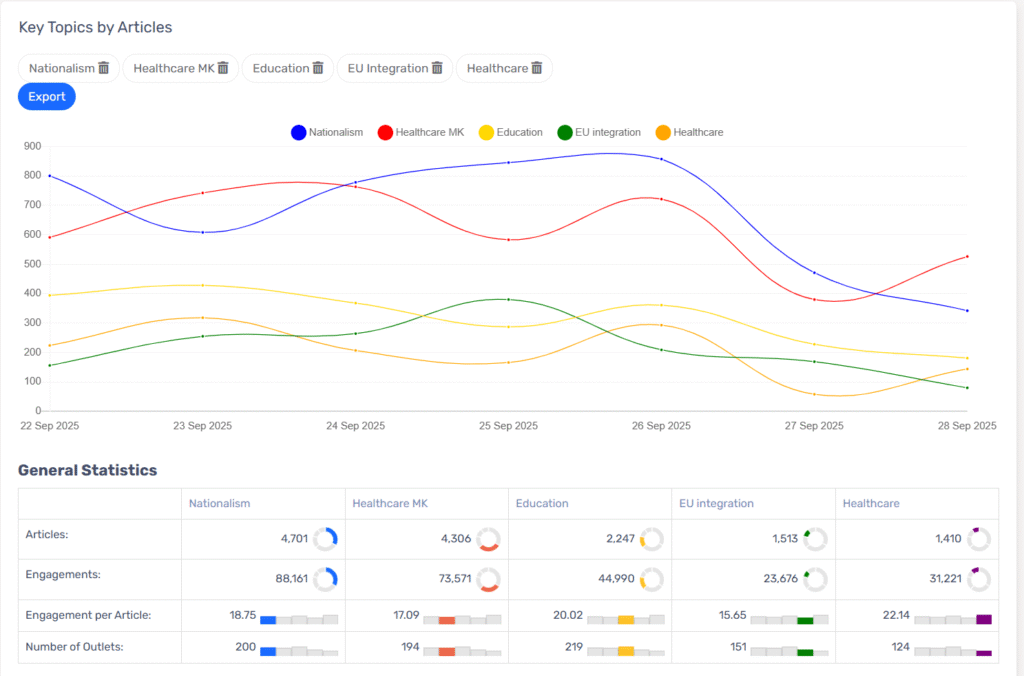
The graphs show the key topics after media and social network posts. Please take into consideration that during the processing for the purpose of this presentation all posts per topic have been covered, rather than only the ones that have been communicated by the participants in the local elections and for the needs of the election campaign.
Methodology
This weekly overview has been compiled based on the data collected and analysed from Pikasa Analytics platform. The methodology includes automatic monitoring and analysis of thousands of contents from on-line media and social networks, which provides a precise and comprehensive insight into the public discourse and media coverage trends.
Civica Mobilitas is a project of the Swiss Government implemented by MCIC., NIRAS from Denmark and FCG from Sweden. The opinions and views expressed in this article do not reflect the views of the Swiss Government.


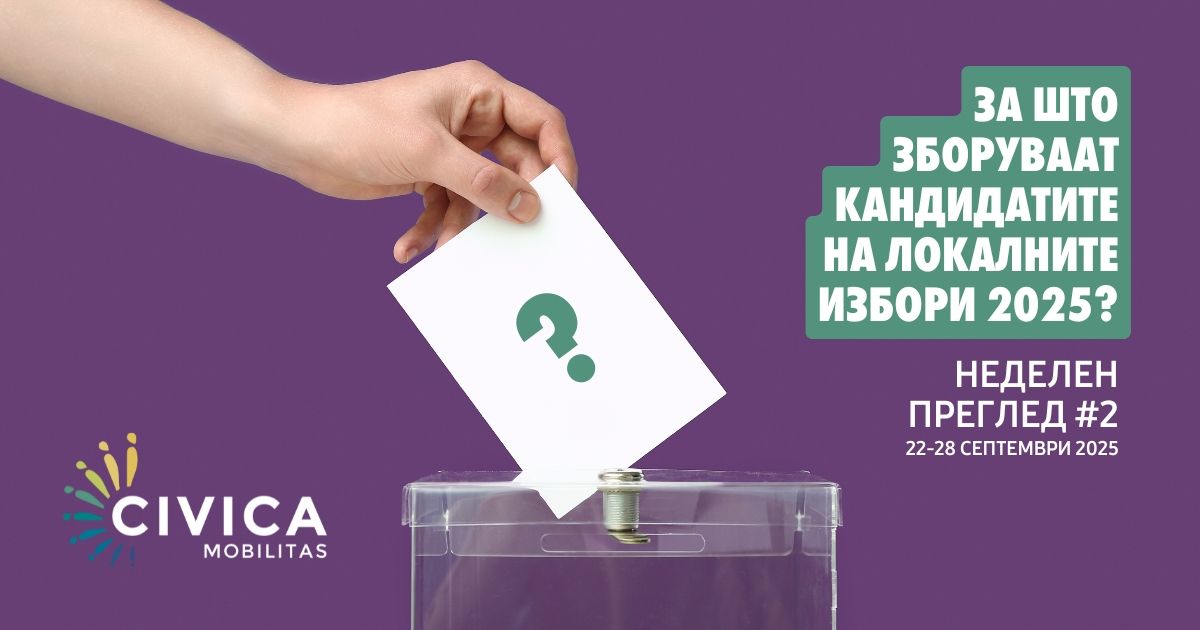

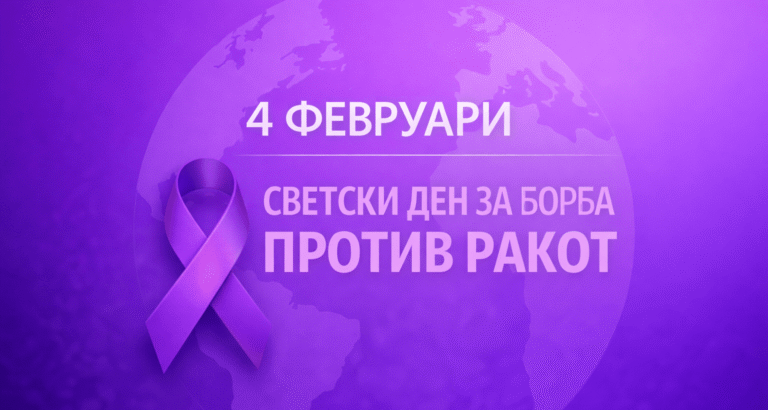
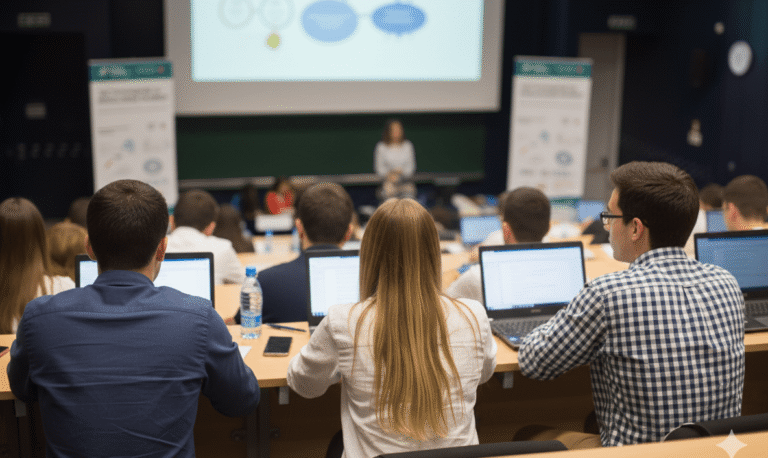
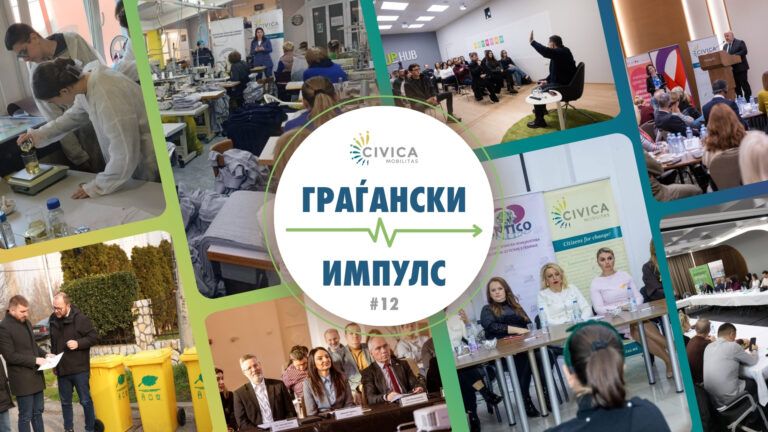
![Sre]ni praznici(2)](https://civicamobilitas.mk/wp-content/uploads/2025/12/sreni-praznici2-768x432.jpg)
